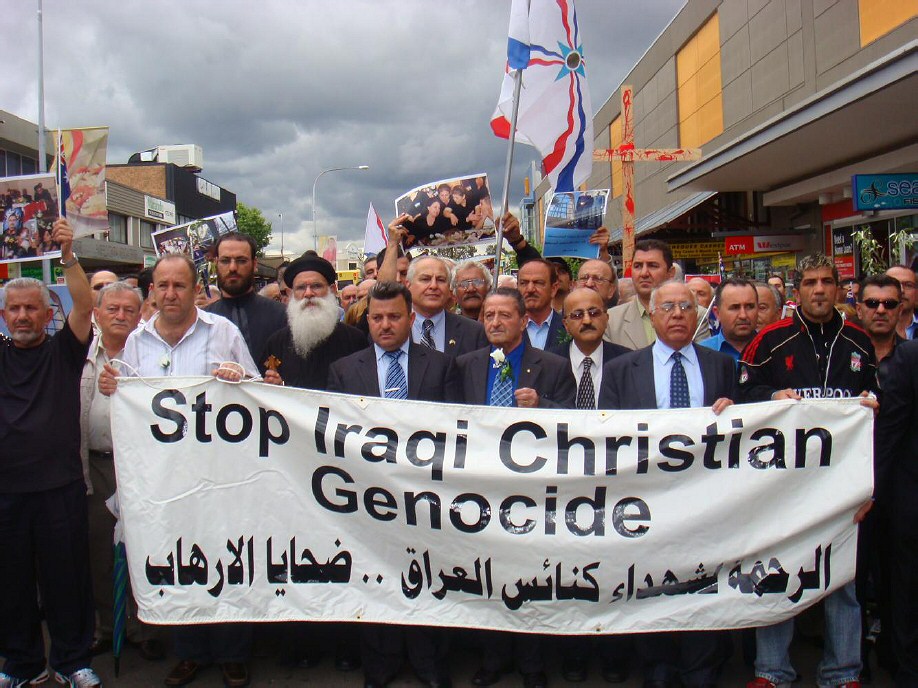Even the Kurds Now Impose a Disguised Jizyah
by Hugh Fitzgerald

The recent news that the Kurdish government in northern Iraq has imposed a variety of special taxes and fees on those who live in the town of Ankawa should raise an eyebrow or two.
Business owners in Ankawa — but nowhere else within the Kurdish-run area — will now have to pay a fee to renew their licenses to do business; before, the license renewal was free. Furthermore, a new 10% tax on the sale of property in Ankawa replaces a previous 6% tax. Nowhere else in the Kurdish-run area are such taxes and fees being imposed. Since Ankawa is 80% Christian, the only town in Kurdish Iraq with such a high Christian population, it is clear that the tax is really meant to fall almost entirely on Christians, without its being described as such. As one local official admitted, these fees and taxes constitute a kind of jizyah, the tax imposed on non-Muslims in a Muslim polity in order that they may continue to observe their religion.
The Kurds have worked closely with the Americans, to whose protection they owe a lot, and they traditionally have been far more secular than the Arabs — for Islam, as Anwar Sheikh has said, is the vehicle for Arab supremacism, and the Kurds have been on the receiving end of that Arab supremacism (182,000 were murdered by Saddam Hussein’s Arab soldiers during Operation Anfal). But even for our allies the Kurds, the jizyah is apparently still to be imposed on the local Christians.
But why now? Before, when ISIS was a much greater threat, having taken over fully one-third of Iraq’s territory, the Kurds desperately needed military assistance from the Americans. They could not afford to impose the jizyah on the Christians of Ankawa and thereby antagonize their American ally. But now that ISIS has been driven entirely from Iraq, the Kurdish reliance on the Americans is no longer quite so necessary, and they are, unfortunately, reverting to Muslim type — that is, imposing the jizyah on Christians living in the Kurdish-run areas, but disguising it as a tax, imposed not on Christians, but on residents of Ankawa, which amounts largely to the same thing.
The Kurds claim special fees and raised taxes are justified because Ankawa is a place especially favored by visitors. And it is so favored because, being a Christian town, it is peaceful and secure. It’s true, that foreign visitors, including Western journalists and tourists, find Christian-populated Ankawa a more inviting and well-run place to stay in than any Muslim-populated town. But that is no reason to impose new fees on businesses or to raise the tax on property sales in the town.
What the KRG (Kurdish Regional Government) has done reminds us that even among the most secular of Muslim allies of the West, the Kurds in Iraq, who have owed the autonomy they have enjoyed entirely to the American air cover provided from 1991 on, and who have been especially close military allies of the Americans since the invasion of Iraq in 2003, the primordial tug of Islam remains.
Those who thought the Kurds would be different in their treatment of Christians, that they would never impose a jizyah tax, have been proven wrong. Though in disguised form, the taxes and fees that fall only on residents of Ankawa, which is 80% Christian, are in truth, as one Kurdish official admitted in a single explosion of candor, a jizyah tax. But the jizyah may have been sufficiently disguised — being imposed not just on Christians but on all business and property owners in Ankawa — so as not to anger the American ally, whose help the Kurds will still need in the final push against ISIS across the border in southern Syria.
Those who think the jizyah has fallen into desuetude, that it has no relevance today but is only raised as an issue by islamophobes, should look at what just happened to the Christians of Ankawa, not at the hands of Salafists, but at the hands of our long-term allies, the famously “moderate” Kurds.
First published in Jihad Watch.